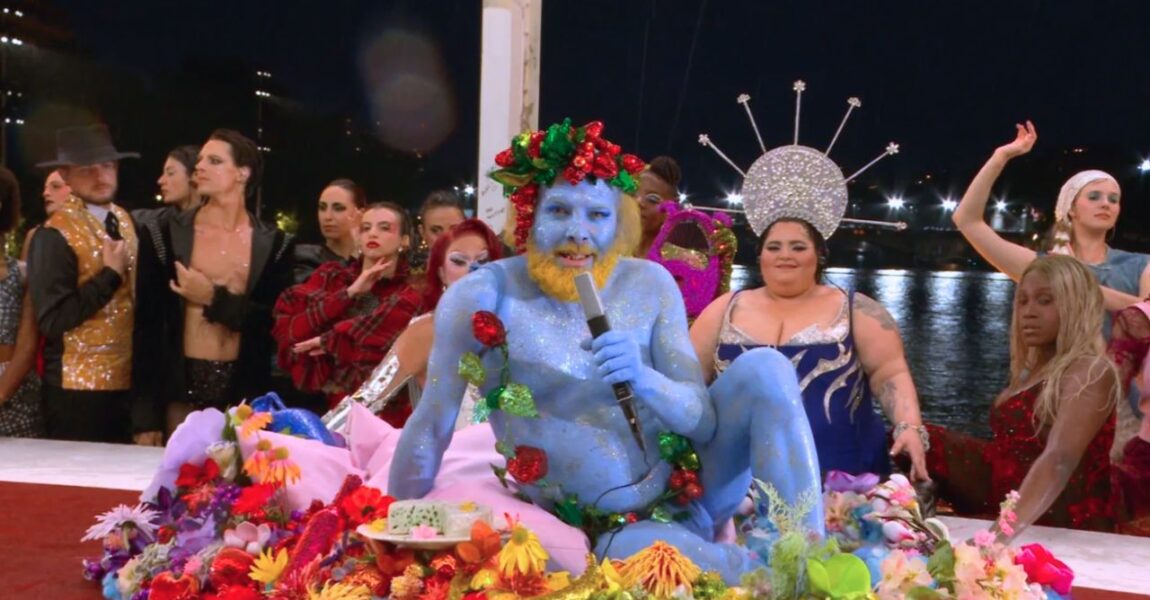
By now, pretty much every political commentator on the planet has written about the Opening Ceremony of the 2024 Paris Olympics. Opinions from every side of the political aisle have been written about almost every element of the segments in question. Christians are, quite understandably, upset at the most infamous of the scenes, accusing the producers of the ceremony of parodying The Last Supper, and Christianity in general.
But that’s not to say that one needs to be a Christian to be offended: the material in question was quite indecent for what is supposed to be a family-friendly show. Nearly naked blue men do not fit the bill. Even secular people would have good reason to not want their children to see such a display.
Defenders of the ceremony, meanwhile, have generally attempted to claim that the scene was supposed to pay homage to Greece and the Ancient Greek gods, specifically Dionysus. It is this questionable claim that I wish to analyze. Putting aside the rather obvious point that Dionysus is not particularly—if ever—depicted as blue, the Olympic Games were never about Dionysus. On the contrary, the god honored there above all others was Zeus. Furthermore, the idea that the Olympics were ever about or were in any way related to Dionysus is ridiculous.
As reported by USAToday, the official Olympics account on X posted that the “interpretation of the Greek God Dionysus makes us aware of the absurdity of violence between human beings.” The ceremony’s artistic director, Thomas Jolly, insisted that, “The idea was to have a pagan celebration connected to the gods of Olympus” and to “create a big pagan party in link with the God of Mount Olympus.”
Despite Jolly’s justification, it’s impossible to ignore the fact that the figure of Dionysus is completely at odds with the spirit of the Olympics. The Olympics were, and have been since their return, about feats of strength and endurance, a representative of what the human body is capable of when pushed to its very limits. Drunkness and slovenliness stand in stark opposition to the values of health, fitness, and athletic preparedness. The age of the ancient Olympics was recognized as a special time when all were welcome to travel to Olympia to compete in the Games and to prove themselves. It was about being the best that one could possibly be. This style has continued down the ages. “The essential thing is not to have conquered but to have fought well,” reads in part the modern Olympic creed. This is the true Western heart of the Olympics and the true Greek sense of life.
To then make the Olympics Opening Ceremony—regardless of whether it was Dionysus or da Vinci the producers of the segment were taking inspiration from—about decadence, partying, and revelry, about the stripping of restraint and the loss of control—all the things that Dionysus stands for—is to reject everything that the old Olympics and of the West as a whole were honoring in the first place.
The Olympics were originally, as they have been in modern times, a tribute to the capabilities and excellence of the human body. This is what the world comes together to celebrate. Adding the glorification of drunkenness to this celebration is entirely out of place, and anyone—whether Christian or otherwise—has every right to find this offensive and absurd.